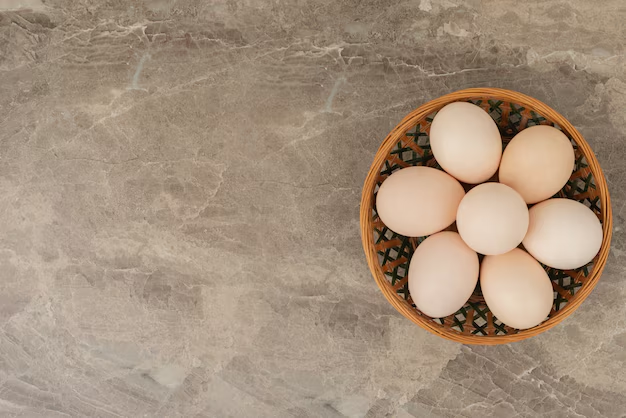How Long Can You Keep Duck Eggs in the Fridge? 🥚
Rummaging through your refrigerator, you spot a carton of duck eggs nestled on a shelf. You pause, wondering, "Just how long can these last?" Understanding the shelf life of duck eggs is crucial not only for food safety but also for culinary success. Let's dive into everything you need to know about storing duck eggs properly and maximizing their freshness.
Why Choose Duck Eggs?
Duck eggs might not be as popular as chicken eggs, but they bring unique qualities to the table that attract chefs and home cooks alike. With larger yolks, richer flavor, and higher protein content, they're often appreciated for the texture and taste they add to baked goods and dishes. Plus, some people with chicken egg allergies find duck eggs a suitable alternative.
Nutritional Value
Duck eggs are nutrient-dense and can be a valuable addition to a balanced diet. Here are some of the key nutrients found in duck eggs:
- Higher Protein Content: Duck eggs contain more protein than chicken eggs, which makes them ideal for muscle repair and growth.
- Rich in Vitamins: They are packed with B vitamins, including B12, which supports energy and nervous system health.
- Mineral-Rich: With higher levels of iron and other critical minerals, duck eggs contribute to overall well-being.
Understanding Egg Freshness
The freshness of any egg, including duck eggs, significantly affects its taste and quality. While duck eggs tend to have a slightly longer shelf life than chicken eggs due to their thicker shells and membranes, proper storage is key to maximizing their longevity.
How Long Do Duck Eggs Last in the Refrigerator?
When stored correctly in the refrigerator, duck eggs can typically last for up to three to four weeks. However, their shelf life can be influenced by several factors, such as storage conditions and initial freshness at the time of purchase.
Factors Affecting Egg Freshness
- Storage Temperature: Keeping eggs cool suppresses bacterial growth and preserves quality. Aim for a consistent fridge temperature of around 40°F (4°C).
- Egg Handling: Avoid washing eggs unless necessary. Washing can remove the protective bloom—a natural coating on the shell which helps shield against bacteria.
- Egg Shelf Arrangement: Store eggs pointy side down to help keep the yolk centered, which can improve freshness longevity.
Proper Storage Techniques 🏆
Ensuring the longevity of duck eggs involves more than just setting them on a refrigerator shelf. Here are some best practices for storage:
Original Carton Storage
Keeping duck eggs in their original carton is preferable. The carton acts as a shield against strong odors from other foods, which can compromise egg flavor. Additionally, it helps keep the eggs at a consistent temperature.
Dedicated Egg Compartment
Most refrigerators have a designated egg compartment that provides the safety of a secure location. It can minimize temperature fluctuations when the fridge door is opened and closed—crucial for maintaining freshness.
Avoid High-Humidity Areas
Make sure your duck eggs stay in an evenly tempered environment within the fridge. The presence of moisture and humidity can promote bacterial growth, hence it's vital to keep the eggs dry.
Storage Cheat Sheet 📋
- Carton it!: Keep eggs in their original carton.
- Consistent chill: Maintain fridge temp at or below 40°F (4°C).
- Location matters: Use the egg compartment—avoid the door.
- Pointy end down: Helps preserve freshness longer.
How to Tell if a Duck Egg Is Still Fresh? 🤔
It's essential to assess the freshness of your eggs before using them. Here are simple methods to determine if a duck egg is still good:
The Float Test
Fill a bowl with water and gently place the egg inside:
- Fresh Egg: Sinks to the bottom and lays flat.
- Slightly Older Egg: Stands upright on the bottom.
- Spoiled Egg: Floats to the top due to increased gas within the egg.
Visual and Sniff Test
- Crack It Open: A fresh duck egg will have a firm yolk and a gel-like, compact egg white.
- Smell: Any foul or sulfurous odor indicates spoilage.
Listen to Your Eggs
Gently shake the egg near your ear. If you hear sloshing, the egg may be old as the contents lose their firmness over time.
Safety Considerations
While duck eggs are a delightful ingredient, they must be consumed safely to avoid foodborne illnesses, primarily due to salmonella. Here are some safety tips:
Cooking Tips
- Cook Thoroughly: Ensure eggs are cooked until both yolk and white are firm.
- Avoid Raw Consumption: Eating raw or undercooked eggs is advised against if you're concerned about health risks.
Handling Precautions
- Wash Hands: Practice good hygiene by washing hands before and after handling eggs.
- Clean Surfaces: Regularly sanitize surfaces that come into contact with raw eggs to prevent cross-contamination.
Conclusion: Making the Most of Your Duck Eggs 🍳
Incorporating duck eggs into your cuisine can provide rich flavor and robust nutrition. By following proper storage guidelines and understanding their shelf life, you can ensure that your duck eggs remain fresh and safe to eat. Keep them cool, check regularly for freshness, and enjoy the unique culinary opportunities these eggs offer.
Key Takeaways 📌
- Duck eggs can last 3-4 weeks in the fridge if stored properly.
- Keep eggs in their original carton on a fridge shelf, not the door.
- Perform freshness tests before use and prioritize safe handling.
With these guidelines in hand, you're well-equipped to enjoy duck eggs at their best! Whether you're baking a luxurious cake or crafting a gourmet omelet, these eggs can elevate your meals with their richness and depth. Happy cooking!

